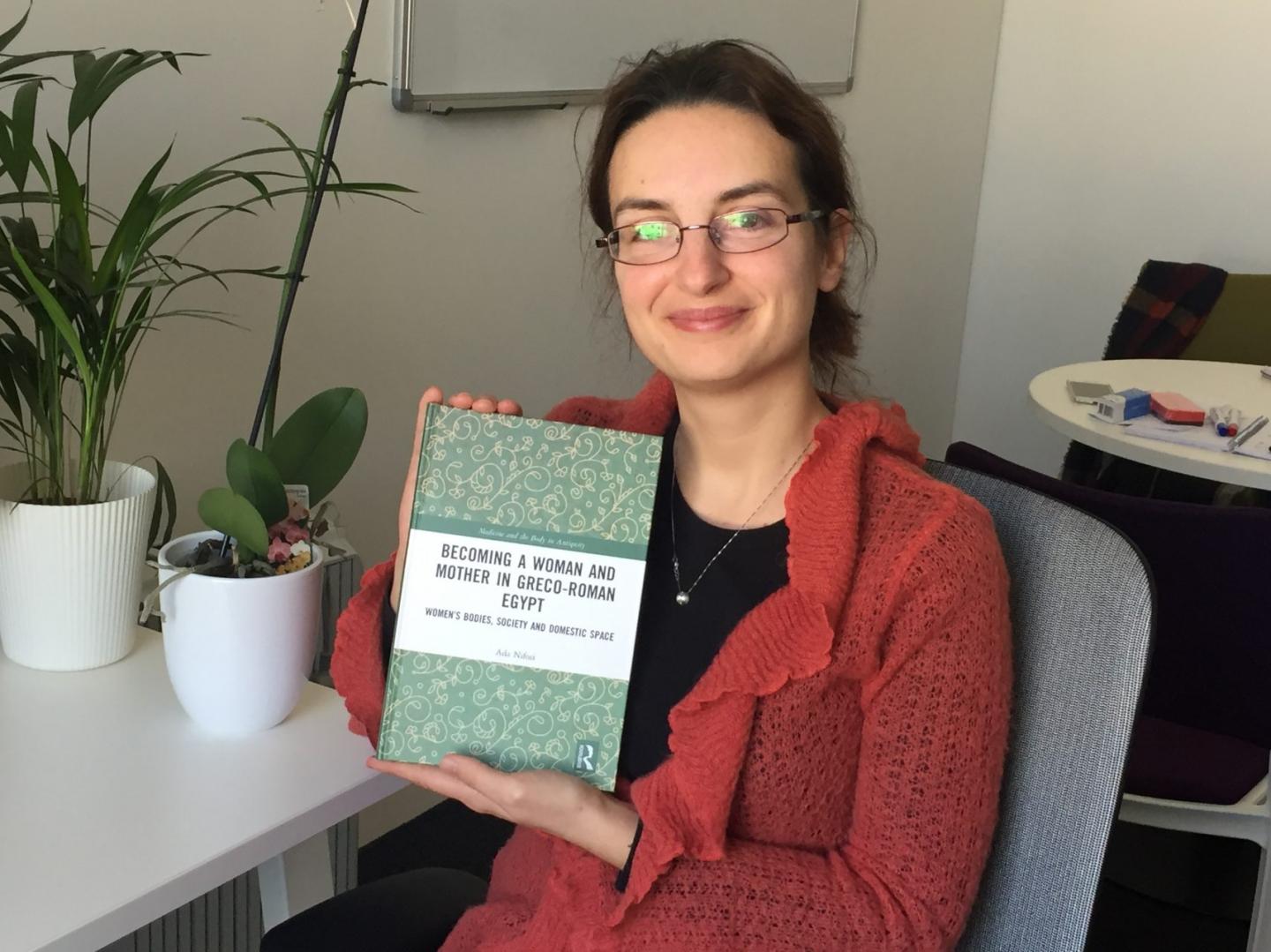Women’s rights in ancient Egypt were better before the 4th century BC than during the Greco-Roman period that followed,

Credit: University of Kent
Women’s rights in ancient Egypt were better before the 4th century BC than during the Greco-Roman period that followed, according to a new book by a University of Kent expert.
Dr Ada Nifosi, a lecturer in Ancient History in the University’s School of European Culture and Languages, found that the status of women in ancient Egypt was higher and had more autonomy than generations to come, including over issues that remain contested today.
For Becoming a Woman and Mother in Greco-Roman Egypt (Routledge 2019), Dr Nifosi carried out a detailed study of women’s everyday lives.
She focused on three key phases – coming of age at puberty, menstruation and childbirth – and found that the status of women and children started changing when Egypt became subject to Greek and Roman rule.
She said: ‘Women enjoyed a much better social status in ancient Egypt and the cultural, moral and legal changes that came with Greco-Roman rule were not for the better. For instance, before the Greeks ruled Egypt, Egyptian women could exercise their legal rights freely and independently.
‘However, after the Greeks introduced their laws into Egypt, most women living there needed a male guardian for legal acts such as marriage. Egyptian women also gradually lost control over their bodies and their offspring. For instance, the power to recognise children was entirely in the fathers’ hands and mothers had little or no say in this choice. Sometimes children were even abandoned and left to die or be raised as slaves. This doesn’t seem to have happened before in ancient Egypt.’
Dr Nifosi’s studies used a large number of personal objects from private houses in the Greco-Roman Egyptian village of Bakchias (Fayyum, Egypt). By combining groups of artefacts from these houses with information from papyri and ostraca (pottery sherds inscribed with writing), she could establish details about how women and girls lived their lives.
Dr Nifosi’s research touches on many issues, such as the status of unborn children, the medical role of midwives and beliefs about menstruation, which are still relevant today. She is planning to carry out further research on menstruation in order to raise more awareness about ancient and modern social stigmas.
Becoming a Woman and Mother in Greco-Roman Egypt is the first interdisciplinary study of women in Hellenistic and Roman Egypt from the 3rd century BC to the 3rd century AD.
###
For further information and interview or image requests contact Sandy Fleming at the University of Kent Press Office.
Tel: +44 (0)1227 823581
Email: [email protected]
News releases can also be found at http://www.
University of Kent on Twitter: http://twitter.
Established in 1965, the University of Kent – the UK’s European university – now has almost 20,000 students across campuses or study centres at Canterbury, Medway, Tonbridge, Brussels, Paris, Athens and Rome.
It was ranked 22nd in the Guardian University Guide 2018 and in June 2017 was awarded a gold rating, the highest, in the UK Government’s Teaching Excellence Framework (TEF).
In 2018 it was also ranked in the top 500 of Shanghai Ranking’s Academic Ranking of World Universities and 47th in the Times Higher Education’s (THE) new European Teaching Rankings.
Kent is ranked 17th in the UK for research intensity (REF 2014). It has world-leading research in all subjects and 97% of its research is deemed by the REF to be of international quality.
Along with the universities of East Anglia and Essex, Kent is a member of the Eastern Arc Research Consortium (http://www.
The University is worth £0.7 billion to the economy of the south east and supports more than 7,800 jobs in the region. Student off-campus spend contributes £293.3m and 2,532 full-time-equivalent jobs to those totals.
Kent has received two Queen’s Anniversary prizes for Higher and Further Education.
Media Contact
Sandy Fleming
[email protected]




